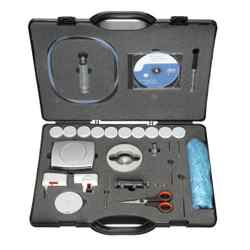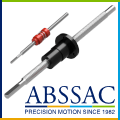
Posted to News on 19th Mar 2012, 11:53
How the right lubrication can improve your equipment
A look at the problems caused by incorrect lubricants and poor lubrication practices, and a series of guidelines that can be followed to optimise your equipment

Every engineer knows that lubrication is an essential requirement for all moving components. However, the evidence shows that this knowledge needs to be applied with a little more care. SKF has found that around 36 per cent of all bearing failures are due either to the use of inappropriate lubricants or poor lubrications practices. Clearly, it is not enough to assume that any kind of lubrication is better than none and simply to apply whichever lubricant is available. To extend the lifespan and optimise the performance of equipment it is essential to be aware of the problems that can arise from incorrect lubrication and make preparations to avoid them.
There are four key factors that need to be considered: Storage, Specification, Application and Testing. A closer look at these factors will reveal a series of guidelines that can be followed to optimise equipment life through effective lubrication.
Storage
Sometimes the lubrication process is hampered before the engineer has even begun because the lubricant on the shelf is unusable. This may be because it has been incorrectly stored in a contaminated or high-temperature environment that has compromised its effectiveness. For example, grease can harden or soften beyond the limits required in these situations; it can also oxidise or be subject to excessive oil separation. The application of this lubricant is therefore not going to give the machinery the required protection. Worse still, if the applicator (such as a grease gun or pump) is dirty, the lubrication process may be doing more harm than good; rather than protecting the equipment with good lubricant, the engineer is feeding in a substance that is not only below quality for the task but is adding dirt into the system at the same time. So, make sure that you store your lubricant in a suitable location.
Specification
While engineers are aware that lubrication is regularly required, they do not always apply the correct type. Considering that investments in components such as high-quality precision bearings are made to reduce failures and keep machinery running smoothly, it is counter-productive to then maintain these parts with the wrong type of lubricant. Temperature, speed and torque must be considered before selecting a lubricant; for example, grease can stiffen in low temperature operating systems and evaporate in high-temperature systems, so lubricants that are composed to cope with these particular conditions should be used. Similarly, the speed of movement within the machinery affects the ability of a lubricant to form a barrier of the correct thickness so, once again, it is important to use a lubricant of the correct specification.
Application
The time interval between each application of lubricant can also have a dramatic effect on the efficiency of the system, as can the volume of lubricant applied. Most engineers are aware that insufficient lubricant can bring a system to a standstill because without lubrication the bearings will run dry and the elevated temperature will cause machine failure. However, it is also important to remember that too much lubricant can increase friction, increase temperature and cause migration of grease into parts where it can cause damage, such as electrical motors.
Testing
A swift and effective method of checking that your system is operating with the correct lubrication is to use a diagnostic tool, such as the SKF Grease Test Kit TKGT 1. During the operation of machinery, the condition of the lubricant will vary. Using a test kit, changes in a lubricant's consistency, oil bleeding properties or level of contamination can be checked and the results measured against a diagram. The test can indicate what should be done immediately to rebalance the system and, over time, will establish whether lubrication is being repeatedly mismanaged and thus help engineers to be proactive in improving lubrication practices to avoid problems in the future.
By considering the problems that can stem from inadequate storage, specification, application and testing, many of the machine failures currently caused by incorrect lubrication can be eradicated. For further information, go to the SKF website at www.skf.co.uk.

































